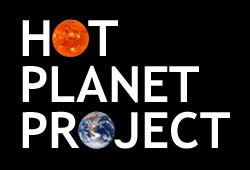Externalized costs are like the magician’s other hand. A skilled magician knows how to keep attention away from where the action is really occurring, which is to say where the deception is committed. Theatrical flourishes keep our eyes on whatever object he’s holding, while his other hand, safely in our attentional blind spots, is free to engage in sneaky behavior.
Externalized costs, paid by the public, keep the harm from the fossil fuel economy – damage to public health, infrastructure, agriculture and international relations – out of sight. We’re left with the economic magic of otherwise cheap energy.
A report by the New Climate Economy pegs the scope of the externalized costs deception to a dollar figure: $26 trillion. That’s the amount the global economy stands to gain by embracing renewable energy and sustainable development.
Vox’s David Roberts offers his usual insightful take on the report:
The researchers are frank: “Current economic models are deeply inadequate in capturing the opportunities of such a transformational shift, or the grave dangers of climate inaction,” they write. “We need a new class of economic models that can capture the powerful dynamics at play, including transformative technological advances, preservation of essential natural capital, and the full health benefits of cleaner air and a safer climate, including the containment of pandemic diseases.”
Indeed! In energy, my personal guess is that by 2030, it will be very clear that we grossly underestimated the benefits and opportunities unlocked by smart, connected, distributed energy technologies — all the widgets and ways we will use to better measure, manage, and share the abundance of cheap renewable energy.
Similarly with transportation. With the benefit of quieter, safer, more livable cities and better respiratory health, we’ll wonder why we ever put up with anything else — why we nickel-and-dimed the transition to electric buses, long-haul trucks, and passenger vehicles; why we fought over every bike lane and rail line.
Economic models keep misleading us in ways that slow the transition to sustainability. So we need new economic models that better capture the real choices we face.
In getting to the heart of the problem – a lack of leadership – Roberts notes that change is likely to come from the bottom up.
Most of the leadership will be from the bottom up — in sync, perhaps, but coordinated only in the loosest sense. And politicians are likely to trail a bit behind emergent economic and technological realities, as they always have, even in such exemplars as California.
This prediction amounts to an opportunity and responsibility we all have to get our communities, cities and states off of fossil fuels as quickly as possible, through carbon pricing, technological innovation and whatever else it takes.

